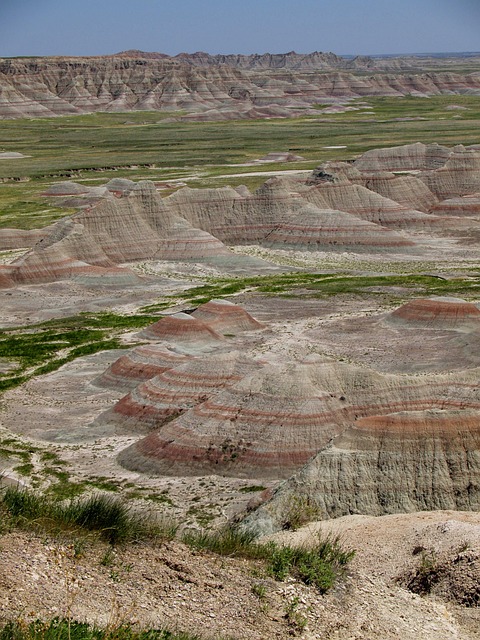North Dakota residents are facing a surge in intrusive autodialer spam calls, prompting them to seek legal recourse. The state's strong legal framework under the Telephone Consumer Protection Act (TCPA) offers protection against unwanted robocalls. Residents should register on the National Do Not Call Registry and consider consulting specialized How To Stop Spam Calls Lawyers ND or Attorneys who can guide them through cease-and-desist letters, call-blocking apps, and provider filtering tools. Engaging a qualified law firm for How To Stop Spam Calls ND ensures assertive action against spam calls while adhering to the state's strict anti-spam regulations.
In North Dakota, the rise of autodialer-driven spam calls has become a pressing issue, leaving residents increasingly frustrated. This article delves into the problem, exploring how these unwanted robocalls exploit technological advancements to inundate North Dakotans’ phones without express permission. We analyze the state’s unique legal framework and offer practical strategies for challenging autodialers. Moreover, we guide consumers on choosing the right legal partner, emphasizing the importance of selecting an experienced How To Stop Spam Calls lawyer ND or attorney from a specialized How To Stop Spam Calls law firm ND.
- Understanding the Problem: The Rise of Autodialer Spam Calls in North Dakota
- Legal Framework: What Makes ND Unique in Combating Unwanted Robocalls
- Strategies to Challenge and Prevent Autodialer Use Without Consent
- Choosing the Right Legal Partner: Tips for Selecting a ND Attorney Specialized in Stopping Spam Calls
Understanding the Problem: The Rise of Autodialer Spam Calls in North Dakota
In recent years, North Dakota residents have faced a growing issue with unwanted and invasive autodialer spam calls. With the advancement of technology, telemarketers now utilize automated dialing systems to make mass phone calls, often without obtaining prior consent from recipients. This practice has led to a surge in nuisance calls, causing significant distress for many North Dakotans. The rise of autodialer spam can be attributed to the ease and efficiency these systems offer businesses, making it tempting to exploit them for marketing purposes.
The problem extends beyond mere annoyance; these automated calls often contain pre-recorded messages or live sales representatives, trying to sell products or services, or even share fraudulent information. Many North Dakota residents feel their privacy is invaded, and they have limited control over the frequency of these calls. This has prompted many individuals to seek solutions, leading them to ask: “How To Stop Spam Calls?” In response, this article aims to guide those in ND on understanding their rights and taking proactive measures against autodialer spam calls.
Legal Framework: What Makes ND Unique in Combating Unwanted Robocalls
North Dakota (ND) stands out among states in its robust legal framework to combat unwanted robocalls, often referred to as spam calls. The state’s laws are designed to protect residents from intrusive and unauthorized automated phone calls, offering them a powerful tool to assert their privacy rights.
The ND Attorney General’s office actively enforces the Telephone Consumer Protection Act (TCPA), a federal law that restricts the use of autodialers and prerecorded messages without prior express consent. Local attorneys specializing in telecom laws, often referred to as how to stop spam calls lawyers ND or how to stop spam calls attorneys ND, play a crucial role in helping residents navigate this complex legal landscape. These legal experts guide individuals on their rights and options, including seeking damages for violations, which can be significant under the TCPA. The state’s strict enforcement and robust legal resources make ND an exemplary model for combating unwanted spam calls.
Strategies to Challenge and Prevent Autodialer Use Without Consent
In North Dakota, challenging autodialer use without express permission is a serious matter that requires strategic action. The first step for residents concerned about unwanted spam calls is to understand their rights under state laws regulating telemarketing practices. Many phone users find themselves deluged with automated messages from unknown sources, which can be disturbing and intrusive. To stop this, individuals should begin by registering on the National Do Not Call Registry. This federal list restricts telemarketers from calling registered numbers except in specific circumstances.
For more targeted protection, consulting a lawyer specializing in consumer rights or privacy laws is beneficial. A legal expert can guide residents on taking proactive measures against autodialers. This may involve sending cease-and-desist letters to the source of spam calls, which clearly communicate the intention to halt further unwanted contact. Additionally, installing call-blocking apps or using filtering tools offered by phone service providers can significantly reduce the volume of spam calls received. How To Stop Spam Calls lawyers and law firms in North Dakota are well-equipped to offer tailored advice and representation for those seeking redress against invasive autodialer practices.
Choosing the Right Legal Partner: Tips for Selecting a ND Attorney Specialized in Stopping Spam Calls
When facing relentless autodialed calls, choosing the right legal partner is crucial to effectively navigating North Dakota’s laws against spam calls. Look for an attorney specializing in telecommunications law who understands the nuances of ND’s anti-spam legislation and has a proven track record of success.
Research potential How To Stop Spam Calls lawyers ND by examining their caseload, client testimonials, and areas of expertise. Reputable stop spam calls attorneys ND will offer consultations to discuss your situation, assess the legality of autodialers targeting you, and outline strategic options tailored to your needs. Engaging a qualified law firm for How To Stop Spam Calls ND can empower you to take assertive action against unwanted calls, ensuring compliance with North Dakota’s strict anti-spam call regulations.






